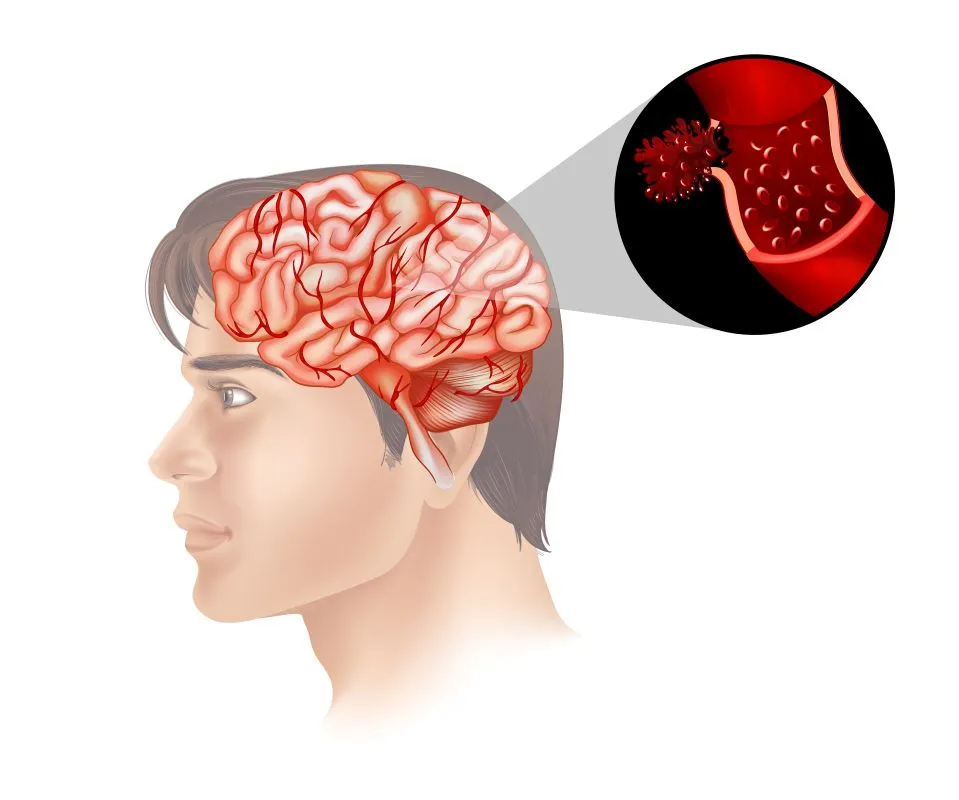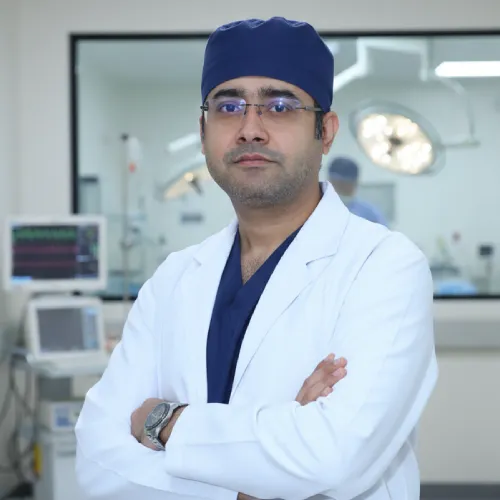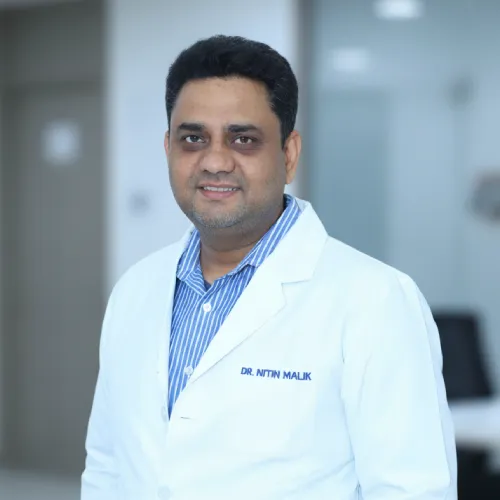A brain stroke is a medical emergency where every second counts. The principle "Time is Brain" is critical, as immediate medical attention can save lives and significantly improve the chances of a full recovery. At Nova Hospital and Research Centre, we have a dedicated rapid-response team and a state-of-the-art Stroke Unit, making us the leading hospital for brain stroke treatment in Meerut. Our expert neurologists and emergency staff are prepared 24/7 to provide life-saving care the moment a patient arrives.
Act F.A.S.T. - Recognizing the Symptoms of a Stroke
Knowing the warning signs of a stroke can save a life. Use the F.A.S.T. acronym to quickly identify a potential stroke:
- F – Face Drooping: Is one side of the face drooping or numb? Ask the person to smile. Is the smile uneven?
- A – Arm Weakness: Is one arm weak or numb? Ask the person to raise both arms. Does one arm drift downward?
- S – Speech Difficulty: Is speech slurred? Is the person unable to speak or hard to understand? Ask them to repeat a simple sentence.
- T – Time to Call Emergency: If you see any of these signs, even if they go away, call for an ambulance immediately. Note the time when the first symptoms appeared.
What is a Brain Stroke?
A brain stroke occurs when the blood supply to part of the brain is interrupted or reduced, preventing brain tissue from getting oxygen and nutrients. Brain cells begin to die in minutes. There are two main types of stroke:
- Ischemic Stroke: This is the most common type, caused by a blockage in an artery that supplies blood to the brain. The blockage is usually due to a blood clot.
- Hemorrhagic Stroke: This occurs when a blood vessel in the brain leaks or ruptures (an aneurysm). The leaked blood puts too much pressure on brain cells and damages them.
Key Risk Factors for a Brain Stroke
- High blood pressure (Hypertension)
- High cholesterol
- Diabetes
- Smoking and tobacco use
- Heart disease and atrial fibrillation
- Obesity and a sedentary lifestyle
- Family history of stroke
Rapid Diagnosis and Advanced Stroke Treatment at Nova Hospital
Our priority is to diagnose the stroke type quickly and accurately to begin the right treatment immediately.
- Immediate Diagnosis: Upon arrival, a patient with suspected stroke undergoes an immediate neurological assessment and advanced imaging like a CT or MRI scan to identify the cause.
- Treatment for Ischemic Stroke:
- Thrombolysis (Clot-Busting Drugs): If a patient arrives within the "golden window" (typically 3 to 4.5 hours), we can administer powerful medications like tPA to dissolve the clot and restore blood flow.
- Mechanical Thrombectomy: For larger clots, our specialists can perform this minimally invasive procedure to physically remove the clot from the brain artery.
- Treatment for Hemorrhagic Stroke:
- Medical Management: The first step is to control the bleeding, reduce pressure on the brain, and manage blood pressure.
- Surgical Intervention: In some cases, neurosurgery may be required to stop the bleeding and repair the ruptured blood vessel through procedures like surgical clipping or endovascular coiling.
Life After Stroke: Rehabilitation and Recovery
Recovery from a stroke is a journey, and our multidisciplinary rehabilitation team is here to support you every step of the way. Our goal is to help patients regain as much independence as possible. Our program includes:
- Physiotherapy: To restore movement, balance, and coordination.
- Occupational Therapy: To help patients relearn daily activities like dressing, eating, and writing.
- Speech Therapy: To assist with language, communication, and swallowing difficulties.
- Dietary and Lifestyle Counseling: To manage risk factors and prevent a future stroke.
Meet Our Experts in this Field
Why Nova Hospital is the Best Stroke Hospital in Meerut
In a stroke emergency, the right hospital can make all the difference. Nova Hospital’s comprehensive stroke program is designed for rapid diagnosis and effective treatment.
- 24/7 Emergency & Stroke Team: Our emergency department is equipped with a "Code Stroke" protocol to ensure immediate evaluation by our expert neurologists and neurosurgeons.
- Advanced Diagnostic Imaging: We have round-the-clock access to advanced CT scans and MRI technology to quickly determine the type of stroke and its location, which is crucial for treatment.
- Expert Neurological Team: Our team of highly experienced stroke specialists in Meerut are skilled in the latest life-saving interventions, including thrombolysis and mechanical thrombectomy.
- Dedicated Stroke ICU: We provide specialized intensive care for stroke patients, with continuous monitoring to manage complications and support recovery.
- Comprehensive Rehabilitation: Our care extends beyond the emergency room, with a full suite of rehabilitation services to help patients regain function and independence.
Frequently Asked Questions
The "golden hour" refers to the first 60 minutes after stroke symptoms begin. The "golden window" for giving clot-busting drugs (thrombolysis) is typically within 3 to 4.5 hours. Getting to a stroke-ready hospital like Nova Hospital as quickly as possible is crucial for a better outcome.
Recovery varies greatly from person to person. With immediate and effective treatment, followed by dedicated rehabilitation, many patients can make a remarkable recovery. Our team at Nova Hospital focuses on maximizing each patient's potential for recovery.
Nova Hospital offers a comprehensive and integrated stroke program. This includes a 24/7 emergency response protocol ("Code Stroke"), immediate access to advanced imaging, a team of dedicated stroke specialists, and a complete post-stroke rehabilitation unit—all under one roof.
Up to 80% of strokes are preventable. Key prevention strategies include managing high blood pressure, controlling diabetes, maintaining a healthy weight, eating a balanced diet, quitting smoking, and regular exercise. Consult with our neurologists for a personalized stroke risk assessment.
A Transient Ischemic Attack (TIA) is a temporary blockage of blood flow to the brain, with symptoms that last for a short period. A TIA is a major warning sign that a full-blown stroke may happen soon. It is a medical emergency and requires immediate evaluation by a specialist.


